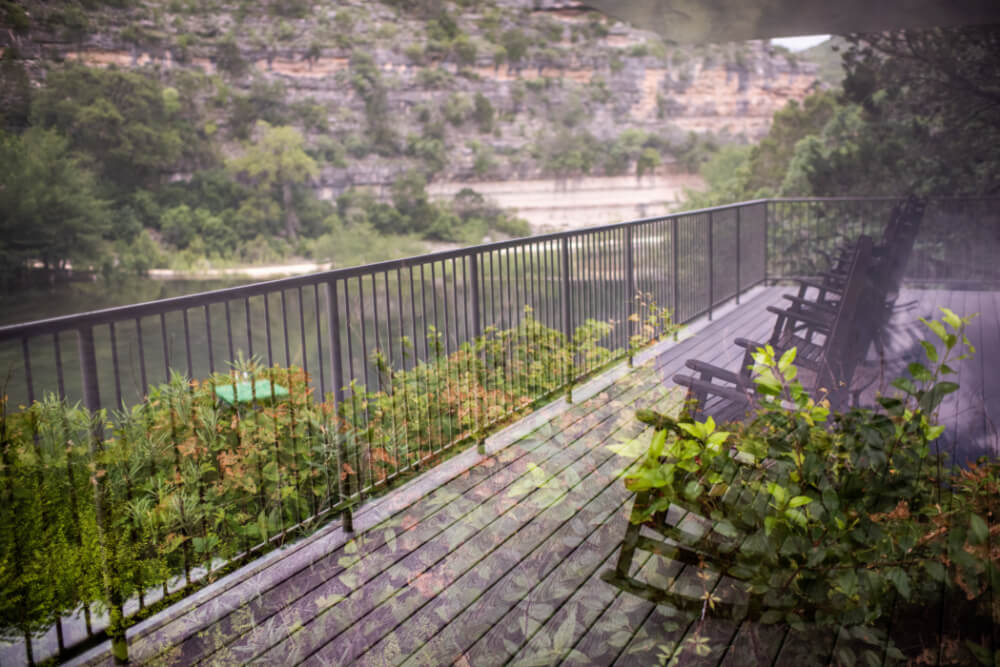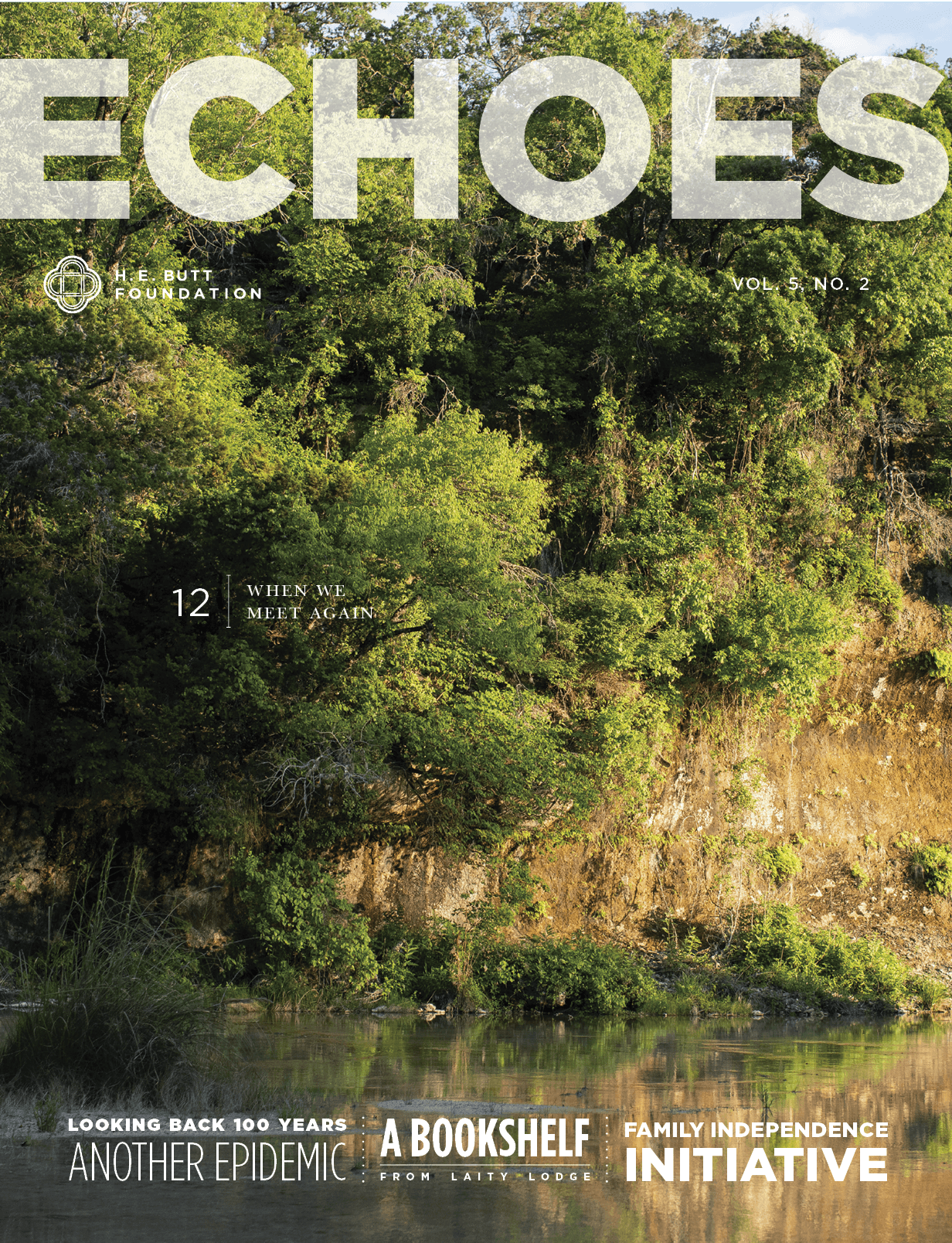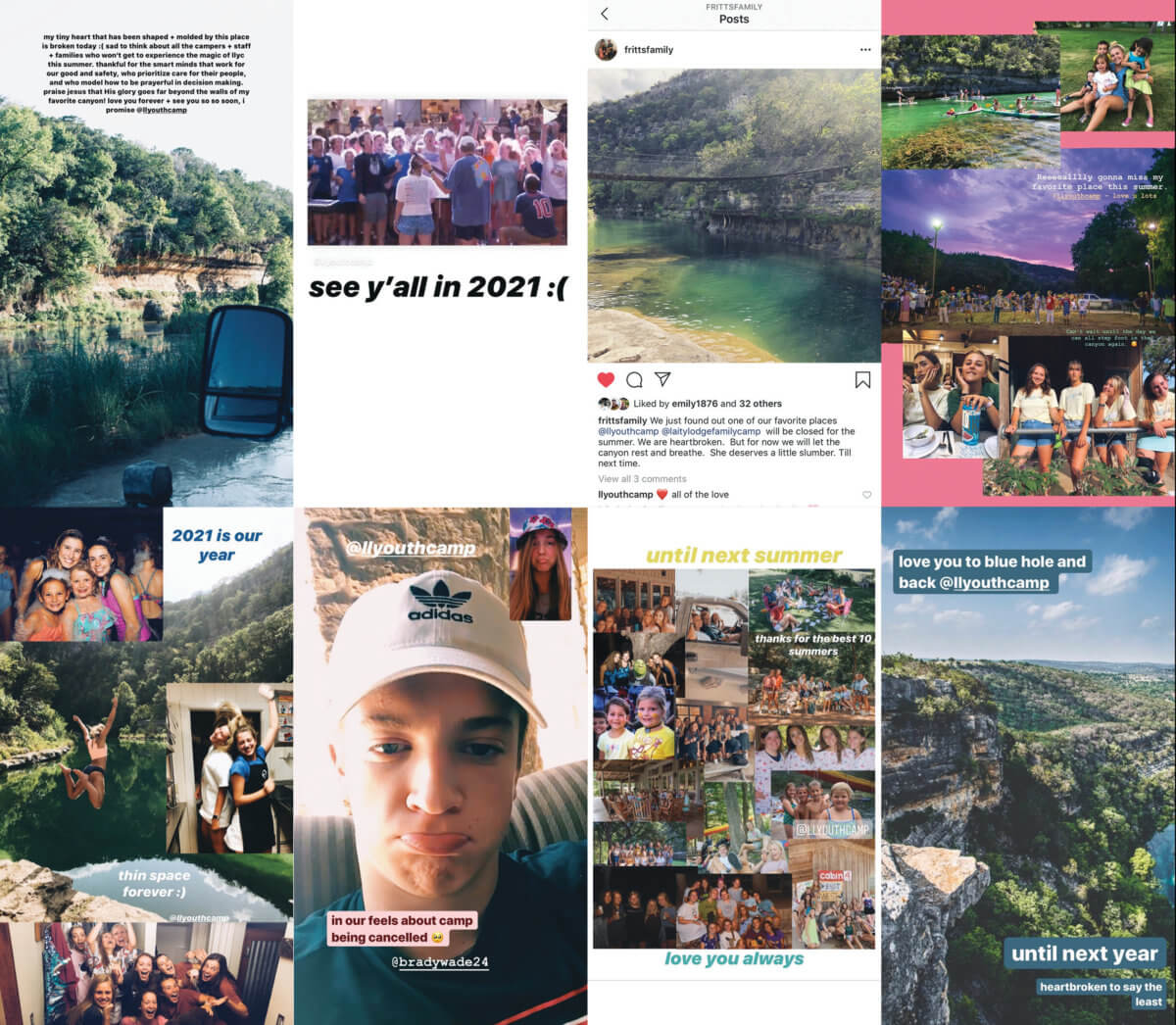

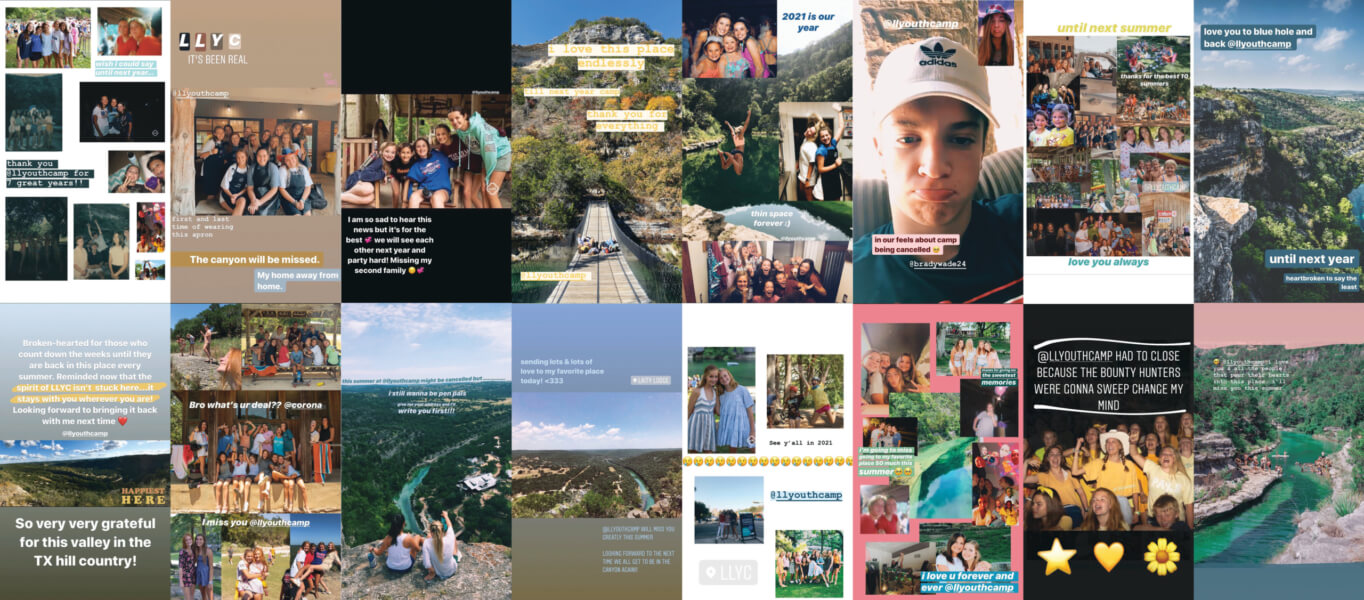
Phone call after phone call, Cary Hendricks delivered the heartbreaking news: Laity Lodge Family Camp’s summer was cancelled because of the COVID-19 pandemic.
He heard the disappointment in families’ voices. More so though, he heard the graciousness.
“Everyone was sad, but totally respected the decision and said they can’t wait to see us again,” says Hendricks, senior director of LLFC.
As coronavirus cases quickly spread across the U.S., the H. E. Butt Foundation responded by cancelling retreats and postponing activities in March. And then, in April. And then, May. [And June.] The difficult decision to cancel summer programming at all camps became inevitable. The safety of campers, staff, families, and the community came first.
Guests understood. One father called Hendricks to explain how much he appreciated the Foundation’s caution: “I know you feel a lot of pressure to communicate what you guess the plan is,” the father told Hendricks. “We don’t feel that. We don’t have any plans. We just wanted to hear that you care about us, are praying for us, and you miss us.”
The Laity Lodge Youth Camp usually hosts more than 1,500 campers over nine summertime weeks. In the spring, staff hammers out the logistics: ordering food and supplies, writing curriculum, and preparing to train seasonal staff.
“We had every intention in March of beginning camp,” says Chandler Pruitt, senior director of LLYC. “We started meeting every day on Zoom. Four weeks later, things started grinding to a halt. We totally hit pause.”
This year marked the first time youth camp has been completely cancelled. Staff reached out to would-be campers, offering comfort after their summer plans were upended. They replied by sharing funny videos and messages, a dose of levity during sad times. Staff also called to check on seasonal staff—working at camp is what they were looking forward to.
Communication encapsulates camp just as much as swimming in the Frio River, ziplining through the trees or enjoying a late-night dance. Time after time, feedback points to relationships as the most memorable and impactful part of camp.
“Camp is a place [campers] can truly be their true selves,” says Chandler. “We preach a lot about camp being a safe place. We try to design everything we do on individual connections.”
These relationships begin perhaps through sharing a joke or playing a game together and blossom via new experiences or conquering a fear. Anxious about buckling on a harness at the high-ropes course? It’s a lot easier with a new friend cheering you on.
“These are the magic moments we don’t see,” says Alex Bailey, senior director of the Outdoor School. “They are moments you remember the rest of your life.”
“Building meaningful friendships proves vital, especially during a pandemic, not only to help keep up spirits, but to plan for the future,” says Gate Davis, Laity Lodge director of program operations.

Since the pandemic first forced cancellations, staff stayed busy, providing updates via social media and email. Families shared updates, too, while they were confined indoors. One recreated Roundup, a camp tradition featuring games, songs, and reflection.
The traditions and programming don’t live solely at camp. While a serene Hill Country setting promotes reconnecting with the creator and finding respite, God works in people’s lives wherever they are, including quarantine.
On social media, staff shared encouraging and fun posts, including a Laity Lodge filmmakers’ retreat, which was cancelled because of COVID-19 and instead converted into a 30-minute video for all followers to enjoy.
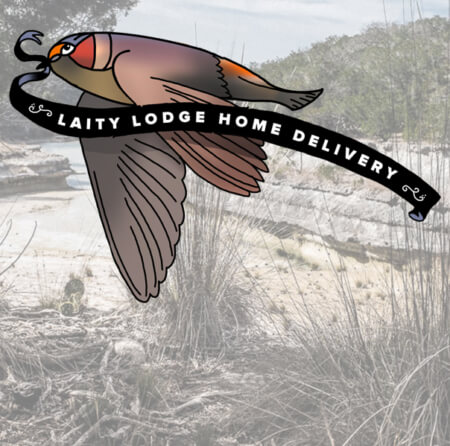
“Families have said how much they miss the Canyon,” says Gate—”the peace of the outdoors, which alleviates so much pressure of daily life—it’s not something you can recreate online.” Still, staff restrained from saturating followers’ feeds with too much online content.
“There’s still value to being outdoors,” says Hendricks. “That’s not all that we are. It’s the beauty of nature and the human interactions. Nurturing relationships is the heartbeat of what we do.”
Greeting each other with a handshake or a hug likely will take some getting used to after so much social distancing and following stay-at-home orders.
“Things will be different; we can’t predict what these differences will be,” says Chandler.
One thing is for sure: this time has allowed for creative strategies to emerge and percolate.
“We’ve been able to refine our vision for greater impact,” says Bailey. “This has also opened an opportunity to work across different teams and get cross-team collaboration.”
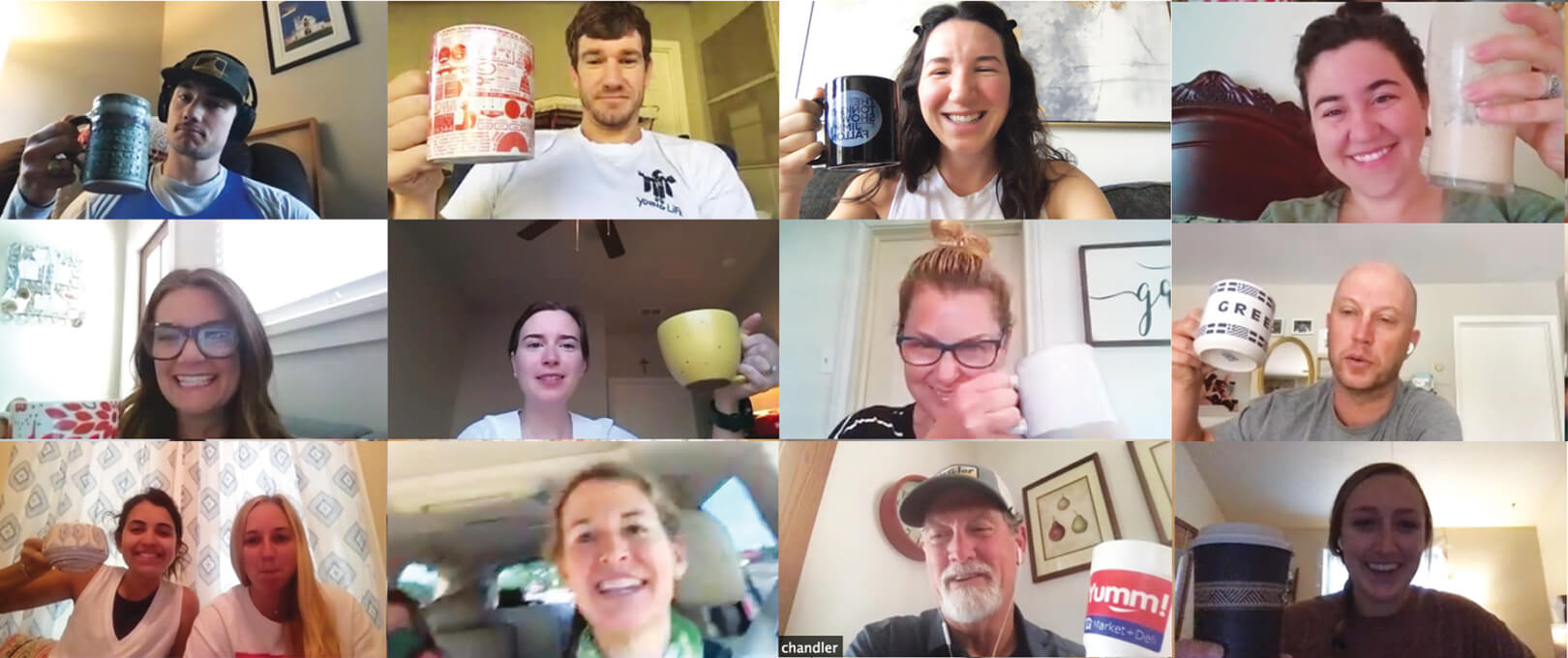
“Everyone on our team has been energized by the realization that the Lodge can be nimble and respond to this situation,” says Gate. “We adapt our program into new paradigms that can hopefully serve people.”
For the Outdoor School, efforts have focused on identifying new public schools around San Antonio that encourage students to explore their curiosities. Training enthusiastic teachers to help lead outdoor adventures, rather than simply accompany them, may help get more students outside. Empowered teachers could organize outdoor fun at home.
“If the teachers get excited, the kids get excited,” says Bailey. “We want to see the Outdoor School as one chapter in a kid’s K-12 outdoor experience. We believe our communities can be the drivers of this vision, too.”
Some ideas for Family Camp include adding more retreats. Typically, the camp is home to 13 weekend retreats during the school year and week-long retreats during the summer. Families whose retreats were cancelled this year were offered secured spots for next year.
Most camps see a majority of guests return year after year. Chandler posed these questions to those following updates on Facebook: “Can you imagine what it’s going to be like when we get together again? Can you imagine how sweet that first Roundup is going to be? Everything is going to be incredible.”
“These new constraints are forcing us to push the boundaries of what we think the Lodge can be and do,” says Gate. “It feels like it’s leading us to a new day.”
